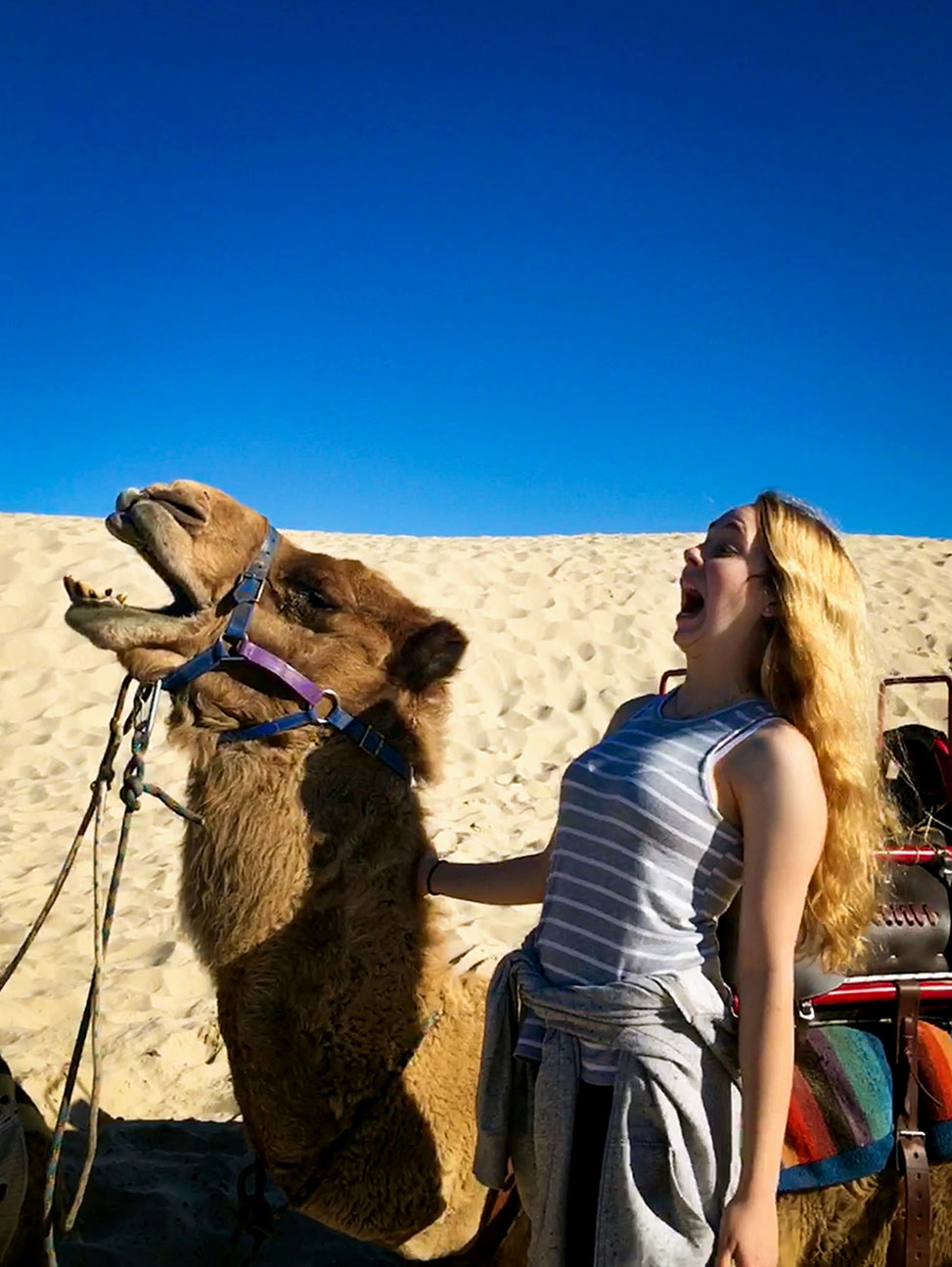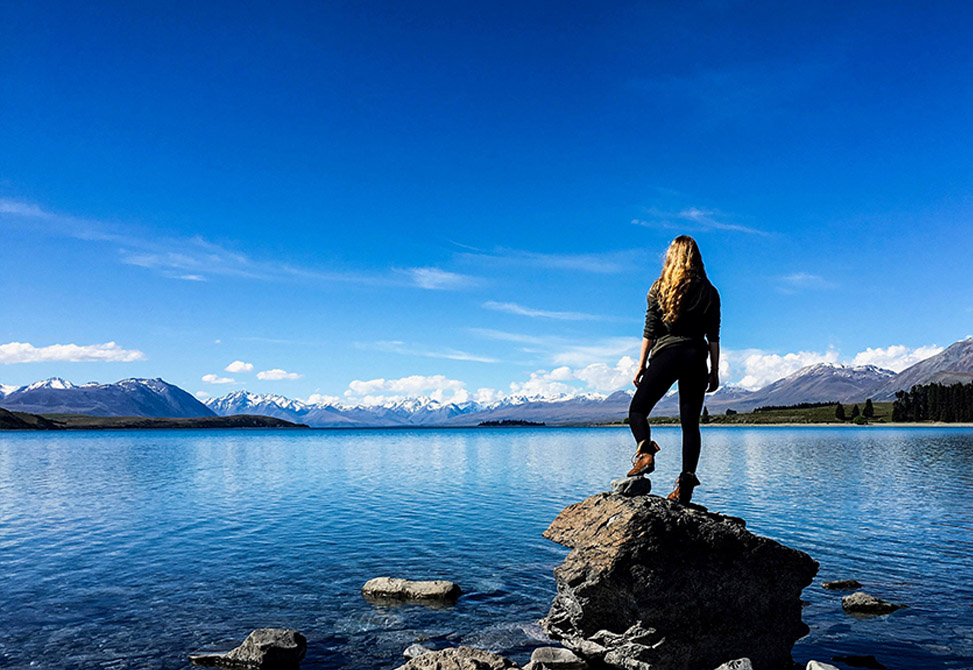Shannon Grant
About My Study Abroad Program
Major/Minor: Biology major, Neuroscience minor
Program: University of New South Wales
Location: Sydney, Australia
Email: smg123@live.unc.edu
Term: Fall 2018
Why did you choose to study abroad and how did you select your program?
I always had an urge to study abroad (wanderlust). I chose my program based on the fact that it allowed me to study biology and also because Australia is rich with wildlife and has so many gorgeous natural features. I got the best of both worlds (city and nature) living in Coogee Beach, right outside of Sydney and only an hour train ride away from the Blue Mountains. It was hard choosing between USyd and UNSW given they are very similar and only 30 minutes apart from one another, however, I chose UNSW because they had better recommendations, and also because they had a flight school, which attracted me because I had recently been getting into aviation and wanted to find peers that I could discuss the subject with.
What did you learn about yourself?
I am very self-sufficient and love interacting with strangers and figuring out all the nuances provided by experiencing a new culture. I love to engage with life and I like a good challenge. Along with this, I also learned that I am a really good salsa dancer after taking classes through my university's Latin Dance club, and that I am a very outgoing person. From other people's comments on the life I lived while there, I am mysterious (likely because I will do things on my own), friendly, fun to be around, very open-minded, and I have no cooking abilities.
What is one of your favorite memories from your program?
Traveling up North to Byron Bay with a group of four others for Spring break, only to have absolutely no plan on where to sleep and miraculously staying with an elder gentleman we met at a lighthouse earlier in the day, who happened to be the #1 Couchsurfing host in the area we were in (Port Macquarie). It was amazing, our group stayed in his house for two consecutive nights along with three other Japanese strangers we ended up running into again weeks later in Sydney. Our host, Chris, taught us his mothers pancake recipe, recounted stories of encounters with wildlife in his backyard, gave us recommendations on where to visit in the local area, let me pick some macadamia nuts to take with me before we left his home, and much more. It was completely unplanned and serendipitous, I wouldn't have changed a thing.
What advice do you have for future study abroad students?
Get out of your comfort zone! Don't be afraid to do things that scare you and "spreading yourself too thin" is not a phrase that applies while studying abroad. Also, make an effort to get to meet the locals, don't just stick to your international cohort. Engage with the culture and do some solo exploring.
Would you do it again?
Most definitely, yes.
How did your study abroad experience prepare you for your future career?
Studying abroad provided me the confidence that I can tackle any problem I face, which will come in handy in my future career, hopefully in genetic counseling, as this occupation is associated with delivering bad news daily and working in grief counseling as well. I know now after the challenges I overcame during study abroad and the competency I had for being completely independent, even in an unfamiliar setting, that I am strong, that I can persevere, and that I can squeeze out every last wonderful, sweet drop of all that is good in life and my career.
How do you identify?
LGBTQ+, Scholarship Recipient
Could you share any experiences where your identity played a role in your time abroad?
Both my identity as part of the LGBTQ+ community (pansexual), as well as being an American in general both played a role in my time abroad. In regard to my identity as part of the LGBTQ+ community and how that influenced my experience, I will admit that it did not influence it often, but when it did, it was quite intense. Australia has been known for having a population that can be subtly racist and homophobic. One time while on a date at a club with a local Australian girl I had met, two bouncers came up to us and asked us to save our affection "for home" while plenty of other heterosexual couples around us were showing affection for one another. I was taken aback and was made to feel ashamed. However, I handled this situation by making sure that during the rest of my stay in Australia, I brought up this apparent homophobia when the conversation took a turn that gave me an opportunity to bring it up. I would talk with the Australian friends I had made about this encounter and we would compare the different social issues between America and Australia and what we could do as citizens of our respective countries to help alleviate the discrimination. In regards to how being an American influenced my time abroad, I'm sure that all my study abroad fellows, no matter what country they studied in, can say the same thing I am about to - I felt like an ambassador of my country, answering questions and providing opinions about the U.S. This in turn led me to learn even more about the U.S., as after a few weeks of constant questions from locals or other international students, I began researching answers to all the questions I couldn't answer previously, and also formed stronger political opinions and kept up with the news more frequently. This was a wonderful but completely unexpected benefit of studying abroad, and led me to the tough but honest truth that before study abroad, I knew little to nothing about the political and social climate and structure of the U.S.
Is there any advice you would give to other students who share your identity?
To students who identify as LGBTQ+, I would recommend researching your study abroad country's current "feelings" towards the LGBTQ+ community, and seeking out resources to turn to (like your university's LGBTQ center, any community programs, or even just some LGBTQ-friendly nightlife) in case you are feeling unsafe, left out, or misunderstood. However, don't ever let a culture shame you or make you feel bad about who you are, and always be proud of yourself. It might also help to ready yourself by thinking out responses to some questions or arguments that a culture that is either against or not used to the LGBTQ+ community might ask or bring up.
If you faced any challenges abroad, where could you turn to get the support you needed?
Whether it was having my phone and $500 stolen, having a bad encounter with public transportation, getting lost, struggling in school, or even just being sick constantly, I could always turn to my housemates (I lived in a house on the beach with 34 other international students, four of which who were also from UNC). I was always able to confide in someone about the issues I faced abroad, and was also able to talk to local Australian friends I had made about difficulties or confusions I had about the culture (for example, what the heck does "arvo" mean? How about "capsicum"? "Prawns?" (afternoon, bell pepper, shrimp)).That being said, prospective study abroad students should be strongly encouraged to build a social network right off the bat, I believe it's the single most important thing for having a safe, fun, and enriching study abroad experience.
Memories


